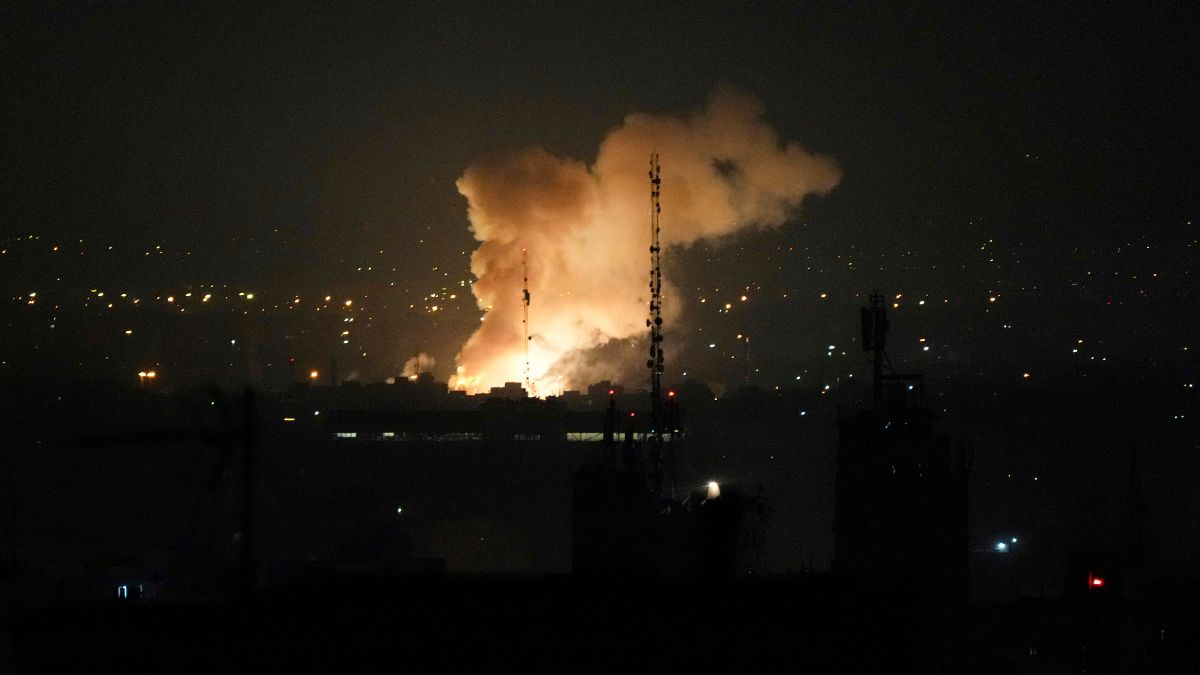When Israel launched a sweeping assault on Iran last week, employing warplanes, drones and covert assets to strike nuclear and military targets, the absence of a robust response from Iran’s closest regional allies raised eyebrows across West Asia.
Hezbollah in Lebanon, often referred to as Iran’s first line of defence in any confrontation with Israel, remained conspicuously silent. So too did powerful Iran-backed militias in Iraq, even as Israel allegedly used Iraqi airspace in part to conduct its attacks.
According to Andreas Krieg, a military analyst and associate professor at King’s College London, Hezbollah has suffered significant strategic degradation. “Hezbollah has been degraded on the strategic level while cut off from supply chains in Syria,” Krieg told AP. The fall of Syrian President Bashar Assad, a vital conduit for Iranian arms, during a lightning rebel offensive in December, further weakened Hezbollah’s capacity to act.
The Iraqi militias, meanwhile, have grown more politically and economically embedded in Baghdad’s government. Unlike Hezbollah, whose military arm operates independently despite its political presence in Lebanon’s parliament, many Iraqi militias are officially part of the state’s defence structure.
“Things in Iraq are good for them right now, they’re connected to the state – they’re benefitting politically, economically,” Renad Mansour, a senior research fellow at the Chatham House think tank, told AP. “And also they’ve seen what’s happened to Iran, to Hezbollah and they’re concerned that Israel will turn on them as well.”
Both Hezbollah and the Iraqi militias have issued condemnations. Hezbollah’s leader Naim Kassem criticised Israel’s strikes and mourned the deaths of senior Iranian officers. But he did not indicate that the group would retaliate. Similarly, Iraq’s Kataib Hezbollah distinct from Lebanon’s Hezbollah, called it “deeply regrettable” that Israeli jets may have used Iraqi airspace, and demanded the removal of “hostile forces” (i.e., US troops) from Iraq. Yet no threats of force accompanied the statement.
Impact Shorts
View AllThe strategic caution may stem from the heavy toll Hezbollah suffered in its recent war with Israel. Following Hamas’ October 7, 2023 attack on Israel and the subsequent Israeli offensive in Gaza, Hezbollah launched rockets in support of its Palestinian ally. This escalated into a full-scale conflict last September in which Israel killed then-leader Hassan Nasrallah, eliminated top Hezbollah commanders, and destroyed much of its arsenal. The fighting only ceased after a US-brokered truce in November, but Israeli airstrikes on southern Lebanon have persisted.
At its peak, Hezbollah was estimated to possess some 150,000 rockets and missiles. Nasrallah once claimed it had 100,000 fighters. But the group’s recent losses and logistical constraints have made its role in future conflict less assured.
Many Hezbollah members, according to Krieg, feel they were “sacrificed for Iran’s greater regional interests” and are now more inclined to pursue “Lebanon-centric” priorities. The perception that Iranian-backed groups act purely on Tehran’s orders has eroded. “It is not really an axis anymore as (much as) a loose network where everyone largely is occupied with its own survival,” Krieg told AP.
Yemen’s Houthi rebels, also aligned with Iran, have continued sporadic missile attacks against Israel and shipping vessels in the Red Sea. But Krieg noted they “lack the strategic deep strike capability against Israel that Hezbollah once had.”
Still, Qassem Qassir, a Lebanese analyst close to Hezbollah, said the group’s involvement cannot be completely ruled out. “This depends on political and field developments,” he told AP. “Anything is possible.”
The muted responses come amid growing regional unease after Israel’s deadly retaliation for Iran’s drone and missile attacks. Israel said its strikes, which killed 78 and injured more than 320 people according to Iran’s U.N. ambassador, were necessary to prevent Iran from nearing a nuclear weapons capability, though US intelligence assessments reportedly indicated Iran was not actively building a bomb at the time.
Israel has warned of further strikes and continues to occupy parts of southern Lebanon while conducting near-daily airstrikes. The heightened tension has thrown upcoming nuclear talks between Tehran and Washington into uncertainty just days before their scheduled meeting.
The long and complex history between Iran and Israel—once friends, then covert allies, now sworn enemies—makes the stakes even higher. But for now, Iran’s most dependable partners in the region seem unwilling, or unable, to enter the fray.
)